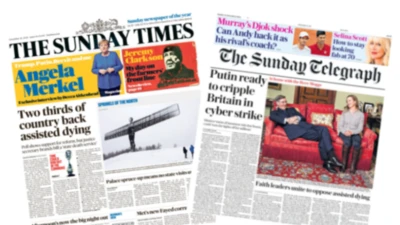We've updated our Privacy and Cookies Policy
We've made some important changes to our Privacy and Cookies Policy and we want you to know what this means for you and your data.
Pentagon study 'backs allowing gays to serve openly'
Allowing gay troops to serve openly in the US military would carry only a low risk to fighting ability, a Pentagon study has found.
The survey also found a large majority of personnel would have no problem serving with openly gay comrades.
Defence Secretary Robert Gates urged Congress to repeal the ban but said the military would need careful preparation before a new policy was implemented.
Under the ban, gay troops may serve but must hide their sexual orientation.
, ordered by Mr Gates, lays out how repeal would affect "unit cohesion", benefits, housing and training.
It broadly supports arguments by opponents of the "don't ask, don't tell" policy that the US military could adjust to openly gay comrades.
The survey, answered by more than 115,000 US military members and more than 44,000 military spouses, found that 70% of those who replied said the presence of an openly gay or lesbian servicemember in his or her immediate unit would have "positive, mixed or non-existent" effects on the unit's ability to "get the job done".
And 69% surveyed said they believed they had already worked alongside a gay or lesbian colleague.
In a statement on Tuesday, President Barack Obama called on the US Senate to overturn the "don't ask, don't tell" ban, which he called a "discriminatory policy".
"Today's report confirms that a strong majority of our military men and women and their families - more than two-thirds - are prepared to serve alongside Americans who are openly gay and lesbian," he said.
Risks of delay
Mr Obama and the Democrats would like to repeal the 17-year-old ban during the current "lame duck" session of Congress - in part because Republicans made significant gains in the recent mid-term elections.
Republicans blocked an effort in September to repeal the measure. Supporters of the ban had said they would await the results of the Pentagon study before deciding whether to back repeal.
"I strongly urge the Senate to pass this legislation and send it to the president for his signature before the end of this year," Mr Gates told reporters at the Pentagon.
Failure to do so would risk leaving federal courts to order an immediate overturn of the ban before the military could properly prepare, which would be "disruptive and damaging", he said.
He said thorough and careful education and leadership would mitigate risks to military effectiveness.
"The level of risk is tied intimately to the quality of preparation," he told reporters at the Pentagon.
"If a court ordered us to do this tomorrow I believe the risk to the force would be high.
"If we have plenty of time to prepare the force, to prepare the leadership... the more effectively we do that preparation, the lower the risk."
'Positive effects'
Meanwhile, a suggested 58% of Americans favour allowing homosexuals to serve openly in the military, compared with 27% opposed. Two federal courts have ruled the ban is unconstitutional.
Mr Gates and US Chairman of the Joint Chiefs of Staff Adm Mike Mullen - both of whom support repealing the ban - are to appear at a US Senate hearing to discuss the findings of the Pentagon study.
Britain, Israel and dozens of other countries allow gay personnel to serve openly, but under the US policy established in 1993, gays may serve in the military but cannot acknowledge their orientation. The military is forbidden to inquire but may expel service members found to be gay.
In one finding repeal opponents could seize upon, roughly 40-60% of combat troops foresaw negative effects on unit cohesion. Mr Gates said that did not present an insurmountable barrier to repeal, and the report's authors said the survey showed combat troops who had actually served alongside gay comrades overwhelmingly praised the unit's ability to work together.
The report quoted one soldier as saying: "We have a gay guy [in the unit]. He's big, he's mean, and he kills lots of bad guys. No-one cared that he was gay."
Top Stories
More to explore
Most read
Content is not available








